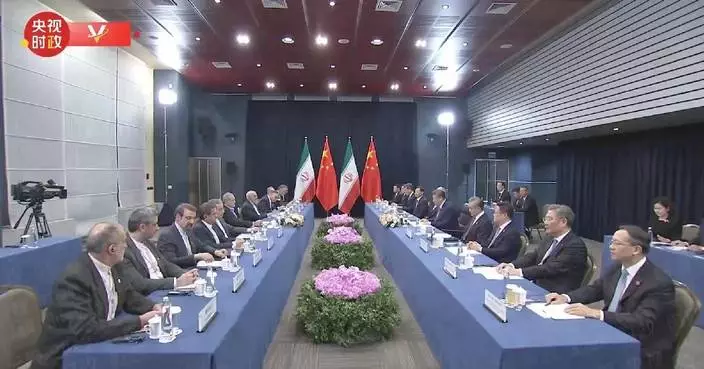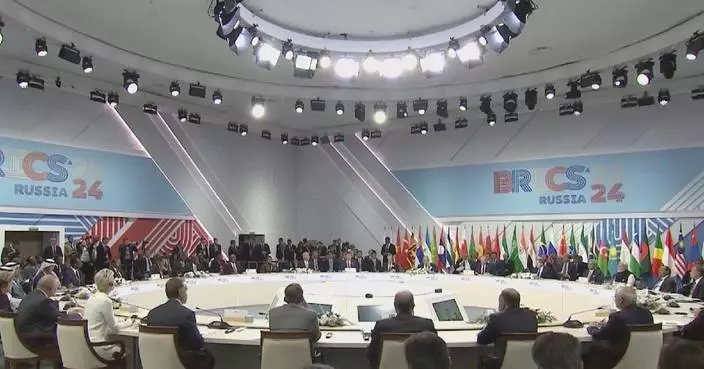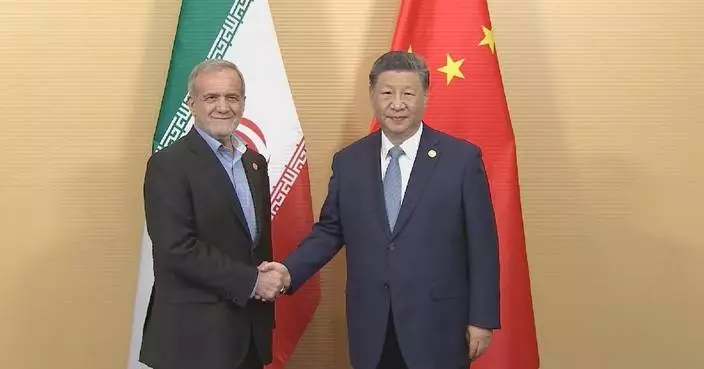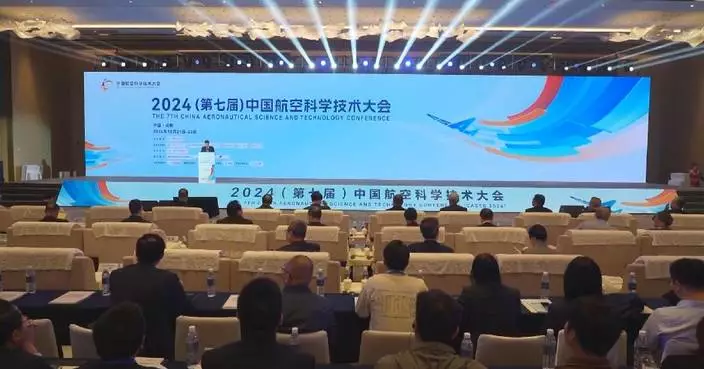Over 60 officials and human rights scholars from China and European countries including Germany, Britain, Sweden, France, Italy, Spain, Portugal and the Czech Republic gathered in the German capital Berlin on Tuesday for a seminar focused on the protection of "new and emerging rights."
The seminar addressed key topics including social rights, economic inequality, the intersection of digital technology and human rights, and protecting human rights in the context of climate change.
Ma Huaide, vice president of China Society for Human Rights Studies and president of China University of Political Science and Law, said the protection of emerging rights has become a new issue in global human rights development.
Ma emphasized China's efforts in protecting citizens' online security and privacy rights, as well as promoting environmental protection and green development. He also called for global cooperation to adopt a "humanity first" approach, promote true multilateralism to avoid imbalances in the global governance of emerging rights, and foster consensus through openness and fairness.
Helga Zepp-LaRouche, founder and chairperson of the German think tank Schiller Institute, praised China's vision of a shared future for mankind, as well as initiatives like the Global Development Initiative, the Global Security Initiative, and the Global Civilization Initiative, which transcend narrow geopolitical interests to address modern human rights needs.
Jure Zovko, president of the International Academy for the Philosophy of the Sciences, underscored the importance of dialog between civilizations, urging mutual learning to protect human beings and their living conditions, while mitigating the risks associated with globalization.
Jiang Jianxiang, director of the Central South University Human Rights Center, said that the diversity of emerging rights concepts and their protection reflects the cultural diversity of the international community. He highlighted the potential for new insights through deeper cooperation and exchanges between Chinese and European human rights institutions and scholars.
First held in 2015, the seminar, now in its eighth edition, is an institutionalized platform for in-depth exchanges and cooperation on human rights between China and Europe.
This year's seminar was co-hosted by the China Society for Human Rights Studies and the Central South University Human Rights Center, organized by the German and Chinese Culture Foundation, and co-organized by the University of Munster and the International Academy for the Philosophy of the Sciences.
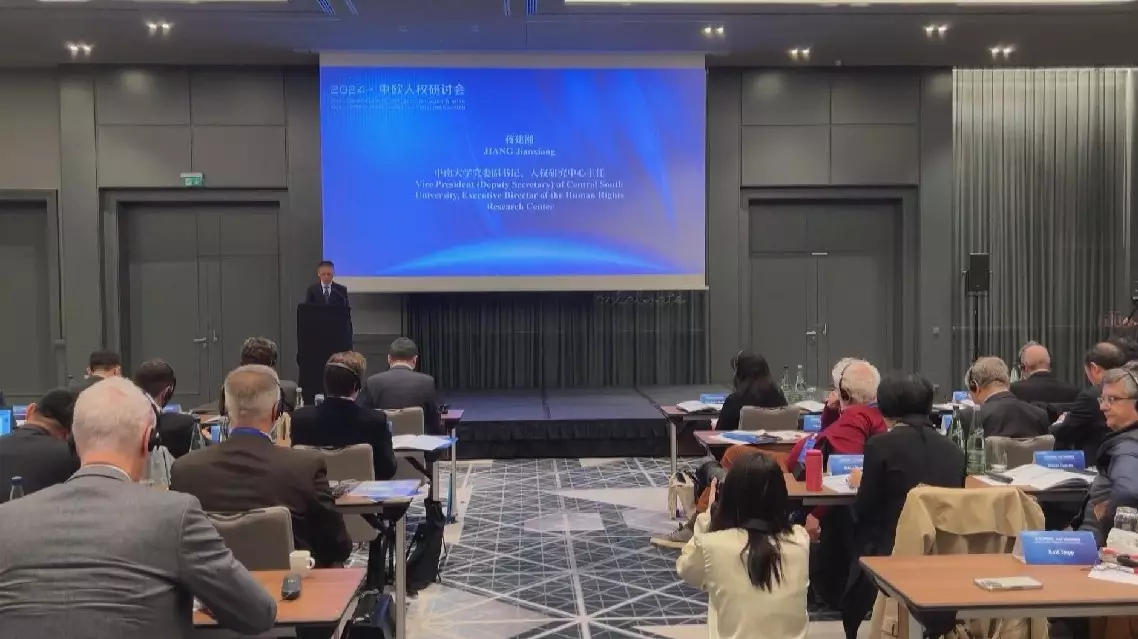
Chinese, European scholars discuss human rights issues
Israeli strikes on Lebanon have left many people in urgent need of medical care, adding pressure to an already struggling healthcare system of the country.
Since Sept. 23, the Israeli army has been conducting intensive airstrikes on Lebanon in a dangerous escalation with Hezbollah.
While Israel claims it is targeting Hezbollah, the offensive has destroyed hundreds of homes, devastated border villages, and resulted in the deaths of over 2,000 people.
According to a report released Tuesday by the Disaster Risk Management Unit at the Lebanese Council of Ministers, the death toll from Israeli airstrikes on Lebanon since the onset of the Israel-Hezbollah conflict has reached 2,530, with injuries totaling up to 11,803.
Dr. Mazen Alameh, the manager of a small hospital in southern Beirut, is among those dealing with the aftermath.
"We are one of the hospitals that have received many injured patients, especially given our location. An explosion nearby damaged the hospital, forcing us to move patients to other facilities with the help of the Lebanese Red Cross. Since then, we have been operating only for emergency cases. Most of the remaining medical teams and staff sleep at the hospital; we prefer not to leave due to the difficulty of moving around, so they work 24 hours a day," said Alameh.
Suleiman Haroun, president of the Syndicate of Hospital Owners, noted that medical facilities across the country are under pressure, not just in the regions directly affected by Israeli attacks.
"The problem is that hospitals in 'safe areas' are also overwhelmed. For example, most dialysis patients have relocated to these 'safe areas,' so the dialysis centers in these hospitals are inundated with patients. Even before the war, these centers were already operating at full capacity," said Haroun.
Other areas are also suffering under Israel's military offensive. The conflict has put immense pressure on hospitals and the healthcare system in general, particularly with the influx of displaced people in Lebanon.
UNICEF warns of a potential outbreak of infectious diseases due to the displacement of over 1.2 million people - nearly 25 percent of the population - into the streets or inadequately equipped shelters.
"We're concerned at the moment about the spread of waterborne diseases like cholera, diarrhea, hepatitis because when water systems and health services are interrupted or destroyed in some way, that can impact children's access to safe water and also increase the spread of waterborne diseases. If it escalated any further, that would definitely be catastrophic for children, and we're trying to prevent that," said Tess Ingram, spokesperson of UNICEF Middle East.
Despite international condemnation, Israel has been accused of targeting the country's healthcare infrastructure, making it increasingly difficult to provide services.
Officials warn that there is an urgent need to end the conflict, as Lebanon's healthcare system can only survive for a few more weeks before it completely collapses.
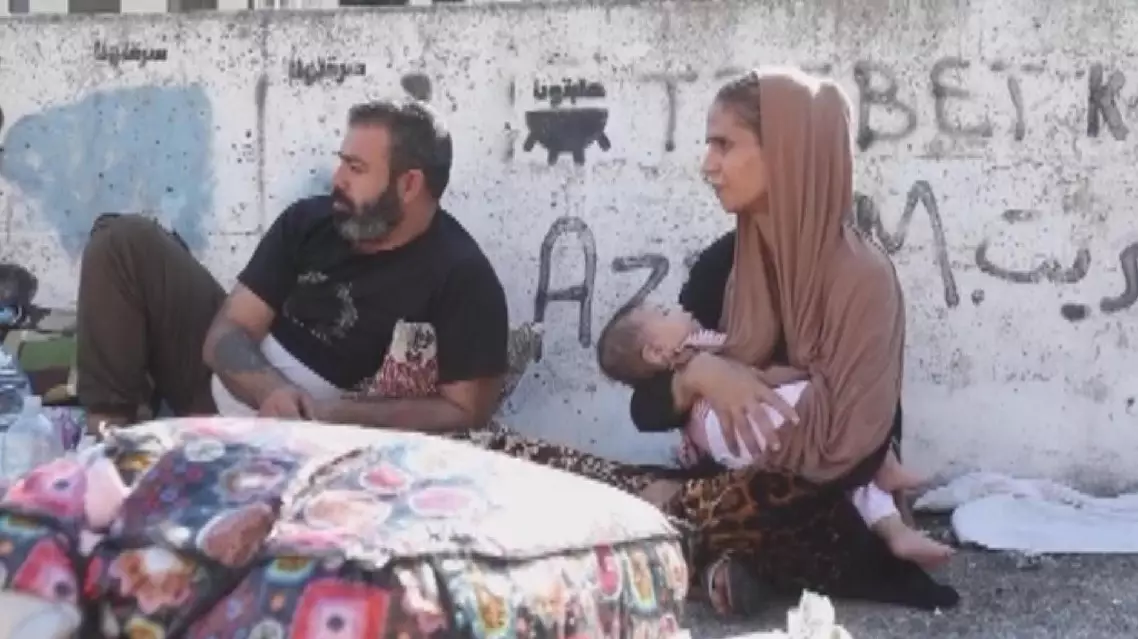
Israeli airstrikes overwhelm Lebanon's healthcare system




